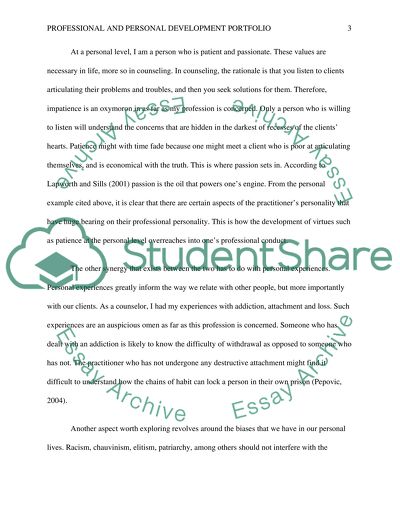Cite this document
(“Personal and professional development portfolio Assignment”, n.d.)
Retrieved from https://studentshare.org/psychology/1469892-personal-and-professional-development-portfolio
Retrieved from https://studentshare.org/psychology/1469892-personal-and-professional-development-portfolio
(Personal and Professional Development Portfolio Assignment)
https://studentshare.org/psychology/1469892-personal-and-professional-development-portfolio.
https://studentshare.org/psychology/1469892-personal-and-professional-development-portfolio.
“Personal and Professional Development Portfolio Assignment”, n.d. https://studentshare.org/psychology/1469892-personal-and-professional-development-portfolio.


